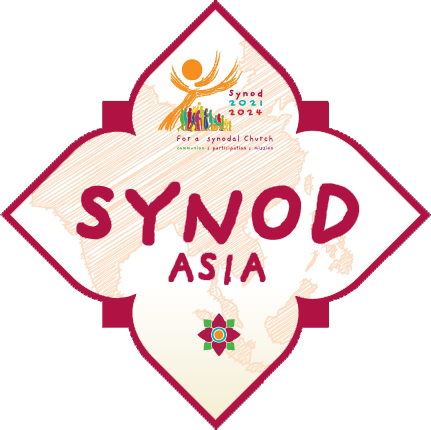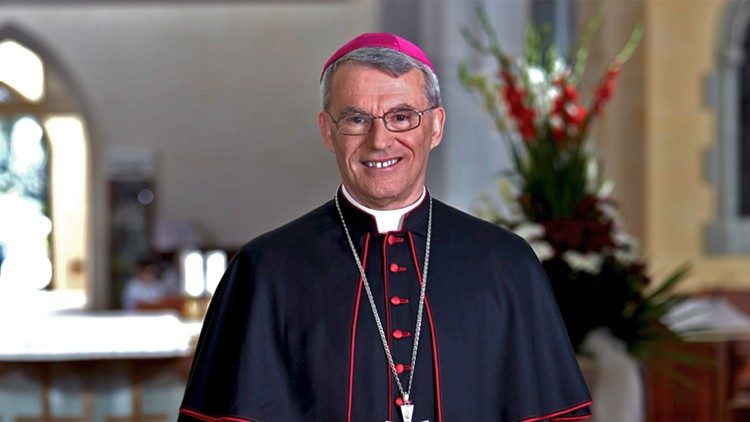By Archbishop Timothy John Costelloe, SDB, Archbishop of Perth (Australia)
It is certainly very appropriate, and we might even say that it is a gift of Divine Providence, that we begin our work together in this “Synod on Synodality” by coming together in retreat on the day in which the Church recalls the life and witness of Saint Jerome. He was, we are told, a passionate and difficult man, someone who did not find it easy to tolerate what he saw as the shortcomings of others. At the same time, he was someone who could recognise the faults and failings in his own approach to people and who was tormented by the realisation that his fiery approach to others sometimes caused great offence and suffering. He would, perhaps, have been a difficult character to manage if he were a member of a Synod which calls us to deep and respectful listening to each other!
Among the many things for which he is remembered, however, perhaps his famous saying, that “ignorance of the Scriptures is ignorance of Christ”, is the precious gift he offers us as we enter into all that lies ahead over the next three or four weeks. We cannot afford to be ignorant of Christ, or forgetful of him, as we seek to discern together just what it is that God is asking of the Church at this time.
In a sense we have the answer, or at least an inkling of the answer, in the reassurance Pope Francis offers us that God is calling us to be, together, a Synodal Church in Mission. The journey we have taken so far has led us to a deeper understanding of the meaning of synodality. Now, at this stage of the journey, we are being asked to reflect not so much on what synodality is but rather on how we are to live it at every level of the life of the Church: as individual Christians, certainly, but always as people who are called together, in communities small and big, in order to be living signs and instruments – living sacraments – of communion with God and unity among all people.
In the book of Genesis, when God created the first man, God saw that it was not good for the man to be alone, so God created the first woman and gave them to each other to enter into a relationship – to form a community. Our experience of the synodal journey has confirmed for us this profound truth – that in the creative design of God we are made for each other, that we are meant to depend on each other, and that it is in and through our relationships that we come to be the people God has created us to be.
The synodal journey has deepened our appreciation of the importance of our relationships with each other. Our engaging in the “Conversations in the Spirit” has opened our eyes to the possibilities which deep, respectful and unhurried attention to the other holds for us all. These are precious gifts for the whole Church.
As we come to understand more clearly how important our relationships with our sisters and brothers in the faith really are, we might recall the words Saint Paul addressed to the first Christian community at Philippi: you must have in the same mind that was in Christ Jesus. That mind, and we might add that heart, are revealed to us in every page of the gospels. As we see Jesus engaged in so many different relationships, and caught up in so many different encounters with people, we begin to get glimpses of what truly and deeply human encounters look like. We can think of the endless patience which Jesus demonstrates towards those, especially his closest disciples, who continually fail to understand him and who so often disappoint him, as today’s gospel story reminds us, and of how his patience prevents them from giving up. We can think of the extraordinary sensitivity Jesus shows towards those who seem to be weighed down by the burdens of their own sinfulness, and of how that sensitivity sets them free. We can think of Jesus’s compassion for those who are lost or confused or pushed to the margins, and of how that compassion restores their hope.
And as we reflect on the patterns of Jesus’s engagement with so many different people in so many different ways, it would be important for us to remember that the words he said to his disciples at the Last Supper are words he also says to us: I am the Way; I am the Truth; I am the Life. If you want to know how to be a welcoming and hospitable Church, learn from me, for I am the way. If you want to know how to be a poor and humble Church learn from me, for I am the way. If you want to know how to be a Church in mission, learn from me, for I am the way. If you want to know how to be a listening Church, learn from me, for I am the way.
As, in the days ahead, we grapple with the question of how to be a synodal Church in mission, we will need to keep our eyes on Christ. At times what we see will console us, at times it will confuse us, and at times it may even confront or frighten us. But in the end, to paraphrase a famous phrase of Pope Saint John XX111, the Church is Christ’s, not ours. It is him we follow, no-one else.
Let us continue, then, to pray that the Spirit of Christ will indeed guide us and be at home in our hearts; that in spite of our weakness and sinfulness the Spirit will enable us to promote not disorder but harmony; that in the Spirit of Christ we will find our unity and become together a living sacrament of communion with God and unity among all people.
And may Mary, the Mother of the Church, accompany us with her prayers for us all.


